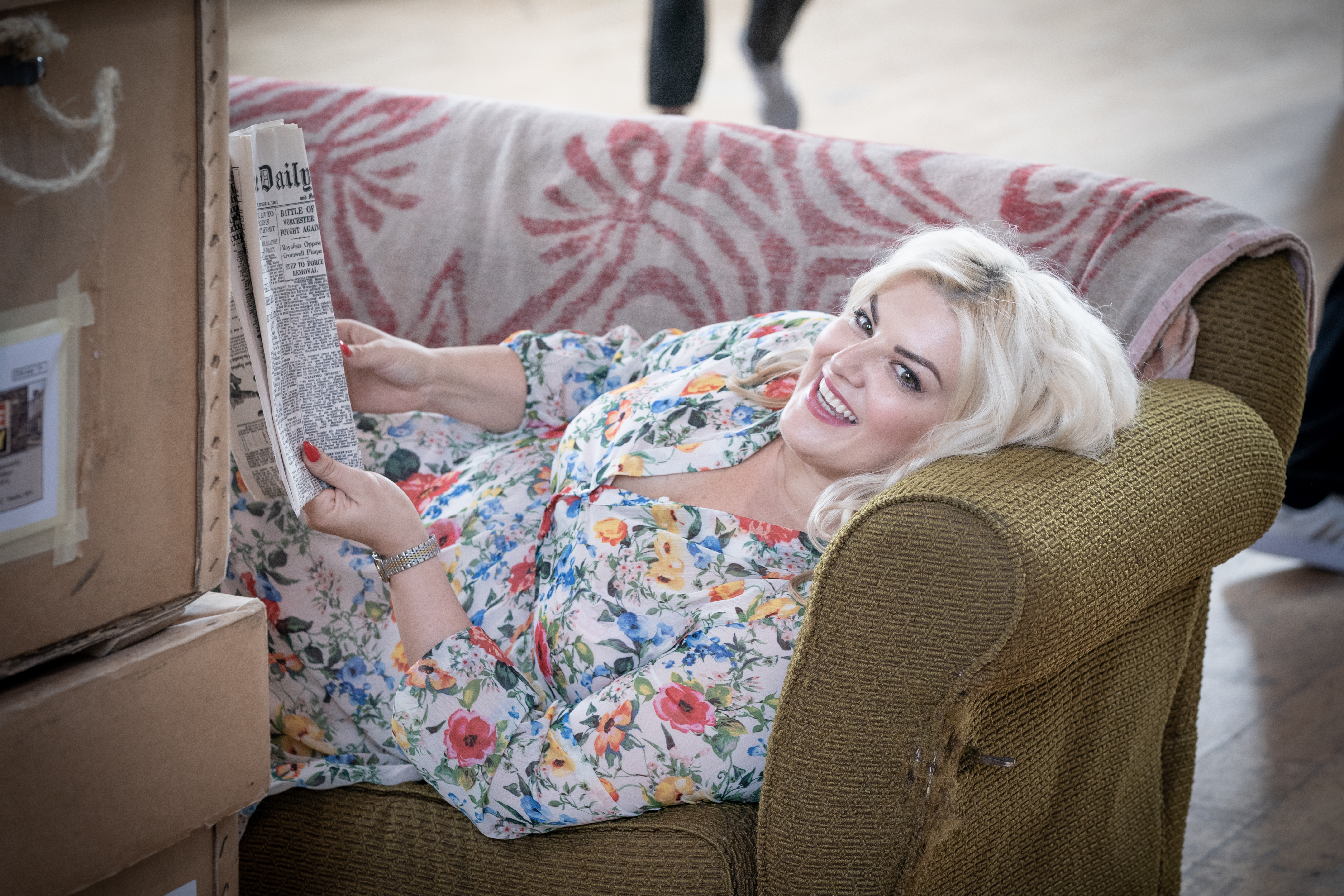Interview with Jodie Prenger

The acclaimed actress tells us about returning to her roots in the National Theatre tour of A Taste of Honey.
Hi Jodie. Do you remember when you first encountered Shelagh Delaney’s groundbreaking play, A Taste of Honey?
I do. A friend of mine, Bobby Delaney – no relation – had played Geof before and he gave it to me. I read it and just loved it.
What was it that grabbed your attention about the play?
It spoke to me because my Mum’s side of the family are all from the Manchester area and I just really related to it. When I went for the audition, I just thought “I’m going to do my Nan.” It was her voice; I could just hear it.
What’s the play about?
It’s a working class story, set in Salford. The central plot is about a mother and daughter relationship between Helen and Jo. But as well as that relationship and their struggles, Jo meets a sailor and that’s a big turning point for her. He gives her all the love she craves from her mother. It was very taboo.
The play was written in 1958, and that relationship was taboo because Jimmy is black, but the piece explores other areas that hadn’t been explored much on stage before too. Jo’s friend Geof is gay, and even the depiction of the working class, and working class women in particular, was unusual. Does it still have the same power to shock?
When they first put it on at Theatre Royal Stratford East, the actor who played Geof, Murray Melvin, was told where the exits were because they didn’t know the reaction that the play would get. That’s how taboo it was. Imagine being told that, how to escape!
We have moved on, but I think it’s important to look back on where we’ve come from and recognise how far we’ve come. I think that’s why A Taste of Honey is still very relevant. I think it’s great to celebrate how far we’ve come; sadly we’ve still got a bit further to go.
You’re playing the role of Jo’s mother, Helen, who’s hardened to the world, a single mother and has issues with alcohol. How would you describe her?
In an old review they called her a monster. I don’t think she is. I don’t think she’d ever see herself as a victim either, more a woman of circumstance. I love her grit. I love her brassiness. Her humour is exceptional. There’s so much I love about her, but she’s flawed in many ways too.
You mention her humour, the plot and themes of A Taste of Honey tackle very serious and dramatic issues about class, gender, sexuality and race. Is there light amid the darkness?
There is. It’s full of that warm northern humour, that even in your darkest days, you make light of it… “My leg’s fell off”…”Don’t worry, you’ve got another one.” The characters may be in the depths of poverty, but they make do and they struggle on. That’s what they all did. They had that fight in them, that “I’m going to get through this.” That’s the great thing about A Taste of Honey – it’s a beautiful funny fight for life. And the language and the rhythm of the script are extraordinary.
It’s amazing to think, isn’t it, that at a time when it was much harder for women and writers from the working class to have plays staged, Shelagh Delaney made such an impact as a teenager?
She was an unknown quantity. She was 19, from a working class family, and also a woman. And she was writing about working class women that existed at that time, but really weren’t heard about. They were meant to be at home with the kids, cooking dinner for when their husbands came home. These wondrous women were just out there and they were a shouting force for all the women in Salford at that time.
The barriers that have been broken down since then have been phenomenal. We have to hold our hands up; we owe it to women like Shelagh. They’re the people we have to tip our hats to because they literally paved the way for us, the women of today.
Why do you think it’s so important that these different voices were heard on stages across the UK then, and continue to be heard today?
In a nation where there’s every kind of colour, creed and human being walking around, everyone should have a voice. I think that should resonate in theatre. Everyone has the right to be heard. Especially stories like this. People coming to watch it don’t know what they’re going to discover. That can really induce people to open their eyes and find something new or consider their opinions. That’s what theatre’s about. That’s why every voice should be heard.
How important, then, is it that the National Theatre is taking this voice to the nation by touring A Taste of Honey?
Very. Not everyone has the opportunity or money to go to London. It’s wonderful that the National takes shows out on the road and lets people see them, because theatre is so important, maybe even more so now that it’s being taken out of school curriculums. And there’s something about live performance that you just can’t compare to sitting in front of the telly. You’re in a room full of people with an elevated atmosphere. That, for me, is why theatre is an experience not to be missed.
How are you feeling about taking A Taste of Honey to Leicester?
I can’t wait to go back to Curve. I love it! I did Calamity Jane there. They’ve got a brilliant audience. They’re lovely and warm. That’s what Nikolai Foster (Artistic director) has created. His Mum’s amazing; she buys everyone chocolates.